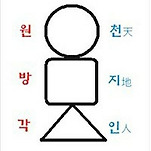<p style="text-align: justify;">나사못은 프랑스어 Vis(뷔, 뷔스) 입니다. 이게 일본으로 넘어 갔다가 역시나 피스라고 바뀌어 돌아왔죠<br><br>그냥 나사못~이라고 하거나 원어를 살려 뷔스(vis)라고 하시면 됩니다&#160;&#160;<br>&#160;<br>&#160;<br>piece(피스)는 조각, 부분 이라는 뜻으로서 낱개 하나 하나를 가리킬 때 쓰이기도 하지만 나사못을 뜻하는 단어는 아니니 주의하시기 바랍니다.<br>&#160;<br>나사는 뷔스, 뷔(Vis)입니다<br>&#160;<br>&#160;<br>&#160;<br>piece&#160;noun&#160;[C]&#160;(PART) <br><br>A2 <br>a&#160;part&#160;of&#160;something: <br>a&#160;piece&#160;of&#160;cloth&#160;torn&#160;from&#160;her&#160;coat <br>He&#160;cut&#160;the&#160;cake&#160;into&#160;six&#160;pieces. <br>This&#160;jigsaw&#160;puzzle&#160;has&#160;two&#160;pieces&#160;missing. <br>The&#160;vase&#160;lay&#160;on&#160;the&#160;floor&#160;in&#160;pieces&#160;(=&#160;broken&#160;into&#160;small&#160;parts). <br>She&#160;tried&#160;to&#160;break/tear&#160;a&#160;small&#160;piece&#160;off&#160;the&#160;edge. <br>The&#160;building&#160;was&#160;taken&#160;apart&#160;and&#160;reassembled&#160;piece&#160;by&#160;piece&#160;(=&#160;one&#160;part&#160;after&#160;another). <br>&#160; <br>&#160; <br>I&#39;m&#160;going&#160;to&#160;have&#160;another&#160;piece&#160;of&#160;cake. <br>A&#160;piece&#160;of&#160;shell&#160;fell&#160;into&#160;the&#160;cake&#160;mixture. <br>He&#160;broke&#160;off&#160;a&#160;piece&#160;of&#160;chocolate. <br>I&#160;dropped&#160;the&#160;vase&#160;and&#160;it&#160;broke&#160;into&#160;pieces. <br>She&#160;ripped&#160;up&#160;his&#160;letters&#160;and&#160;burned&#160;the&#160;pieces. <br>&#160;SMART&#160;Vocabulary:&#160;관련된&#160;단어&#160;및&#160;문구 <br><br>piece&#160;noun&#160;[C]&#160;(THING) <br>&#160; <br>A2 <br>a&#160;single&#160;object&#160;of&#160;a&#160;particular&#160;type: <br>a&#160;piece&#160;of&#160;furniture/clothing/equipment <br>a&#160;piece&#160;of&#160;paper&#160;(=&#160;a&#160;whole&#160;sheet) <br>a&#160;piece&#160;of&#160;china&#160;(=&#160;an&#160;object&#160;made&#160;of&#160;china) <br>a&#160;piece&#160;of&#160;information/advice <br>&#160; <br>an&#160;item&#160;of&#160;clothing,&#160;especially&#160;one&#160;that&#160;is&#160;expensive,&#160;fashionable,&#160;or&#160;individually&#160;made&#160;: <br>Each&#160;piece&#160;is&#160;quite&#160;unique,&#160;owing&#160;to&#160;the&#160;fact&#160;that&#160;all&#160;her&#160;creations&#160;are&#160;hand-knitted. <br>&#160; <br>B2 <br>something&#160;that&#160;has&#160;been&#160;created&#160;by&#160;an&#160;artist,&#160;musician,&#160;or&#160;writer: <br>an&#160;orchestral/piano/instrumental&#160;piece <br>a&#160;skilful&#160;piece&#160;of&#160;work/research <br>Did&#160;you&#160;read&#160;that&#160;piece&#160;(=&#160;article)&#160;in&#160;the&#160;newspaper? <br>&#160; <br>a&#160;single&#160;thing&#160;that&#160;forms&#160;part&#160;of&#160;a&#160;set: <br>a&#160;chess&#160;piece <br>&#160; <br>a&#160;coin&#160;with&#160;a&#160;stated&#160;value: <br><br>Could&#160;you&#160;swap&#160;me&#160;two&#160;quarters&#160;for&#160;a&#160;50&#160;cent&#160;piece? <br>&#160; <br>piece&#160;noun&#160;[C]&#160;(GUN) <br>&#160; <br>old-fashioned <br>a&#160;gun: <br>an&#160;artillery&#160;piece <br>US&#160;slang&#160;He&#160;was&#160;carrying&#160;a&#160;piece&#160;when&#160;he&#160;was&#160;arrested. <br>&#160; <br><br>piece&#160;noun&#160;[C]&#160;(BREAD) <br>&#160; <br>Scottish&#160;English <br>a&#160;sandwich: <br>a&#160;ham&#160;piece <br>&#160; <br>Piece&#160;words&#160;and&#160;group&#160;words <br><br>Piece&#160;words&#160;make&#160;it&#160;possible&#160;to&#160;talk&#160;about&#160;a&#160;single&#160;unit&#160;or&#160;units&#160;of&#160;something&#160;which&#160;is&#160;seen&#160;as&#160;uncountable.&#160;Piece&#160;words&#160;include&#160;words&#160;such&#160;as&#160;piece,&#160;bit,&#160;item,&#160;article.&#160;We&#160;normally&#160;use&#160;them&#160;with&#160;of.&#160;We&#160;can&#160;use&#160;them&#160;in&#160;the&#160;singular&#160;or&#160;the&#160;plural.&#160;… <br>Piece&#160;words <br>Piece&#160;words&#160;make&#160;it&#160;possible&#160;to&#160;talk&#160;about&#160;a&#160;single&#160;unit&#160;or&#160;units&#160;of&#160;something&#160;which&#160;is&#160;seen&#160;as&#160;uncountable.&#160;Piece&#160;words&#160;include&#160;words&#160;such&#160;as&#160;piece,&#160;bit,&#160;item,&#160;article.&#160;We&#160;normally&#160;use&#160;them&#160;with&#160;of.&#160;We&#160;can&#160;use&#160;them&#160;in&#160;the&#160;singular&#160;or&#160;the&#160;plural.&#160;… <br><br><br>관용구들 <br>come&#160;to&#160;piecesgive&#160;someone&#160;a&#160;piece&#160;of&#160;your&#160;mindfall&#160;to&#160;pieces(all)&#160;in&#160;one&#160;piecein&#160;piecespick/pull&#160;someone/something&#160;to&#160;piecesa&#160;piece&#160;of&#160;assa&#160;piece&#160;of&#160;cakea&#160;piece&#160;of&#160;the&#160;piea&#160;piece&#160;of&#160;work <br>&#160; <br>-piece <br>suffix <br><br>with&#160;the&#160;number&#160;of&#160;pieces&#160;mentioned: <br>a&#160;five-piece&#160;band&#160;(=&#160;with&#160;five&#160;players) <br><br><br>piece <br>noun&#160;[&#160;C&#160;] <br><br>piece&#160;noun&#160;[C]&#160;(PART) <br><br>a&#160;part&#160;of&#160;something: <br>a&#160;piece&#160;of&#160;cake/chicken/pizza <br><br>The&#160;vase&#160;lay&#160;on&#160;the&#160;floor&#160;in&#160;pieces&#160;(=&#160;broken&#160;into&#160;small&#160;parts). <br>She&#160;was&#160;so&#160;mad&#160;that&#160;she&#160;ripped&#160;the&#160;letter&#160;to&#160;pieces&#160;(=&#160;into&#160;small&#160;parts). <br>piece&#160;noun&#160;[C]&#160;(ITEM) <br>&#160; <br>a&#160;single&#160;item&#160;that&#160;is&#160;one&#160;of&#160;other&#160;similar&#160;items: <br>a&#160;piece&#160;of&#160;furniture/equipment/luggage/paper <br>I&#160;have&#160;an&#160;important&#160;piece&#160;of&#160;information&#160;for&#160;you. <br>&#160; <br>A&#160;piece&#160;can&#160;be&#160;something&#160;created&#160;by&#160;an&#160;artist,&#160;writer,&#160;or&#160;musician: <br>He’s&#160;written&#160;a&#160;new&#160;piece&#160;of&#160;music. <br><br>관용구들 <br>go&#160;to&#160;piecesa&#160;piece&#160;of&#160;cakea&#160;piece&#160;of&#160;the&#160;actiona&#160;piece&#160;of&#160;the&#160;pie <br><br><br><br>piece <br>noun&#160;[&#160;C&#160;] <br><br>a&#160;single&#160;thing&#160;of&#160;a&#160;particular&#160;type,&#160;especially&#160;one&#160;of&#160;many: <br>a&#160;piece&#160;of&#160;sth&#160;A&#160;faulty&#160;piece&#160;of&#160;software&#160;caused&#160;the&#160;bank&#39;s&#160;online&#160;facility&#160;to&#160;shut&#160;down&#160;for&#160;three&#160;hours. <br>He&#160;produced&#160;an&#160;excellent&#160;piece&#160;of&#160;work. <br>a&#160;piece&#160;of&#160;data/evidence/information <br>&#160; <br>a&#160;coin&#160;that&#160;has&#160;a&#160;value&#160;below&#160;100&#160;pence,&#160;cents,&#160;etc.: <br>a&#160;fifty-pence/fifty-cent&#160;piece <br>&#160;pay/buy/sell&#160;by&#160;the&#160;piece <br>&#160; <br>COMMERCE <br>to&#160;pay&#160;for,&#160;buy,&#160;or&#160;sell&#160;something&#160;in&#160;single&#160;units&#160;rather&#160;than&#160;in&#160;groups: <br>The&#160;stitchers&#160;are&#160;paid&#160;a&#160;salary&#160;rather&#160;than&#160;by&#160;the&#160;piece. <br>In&#160;those&#160;days&#160;stores&#160;sold&#160;candy&#160;by&#160;the&#160;piece&#160;for&#160;a&#160;penny. <br><br><br>mailing&#160;piece <br><br><br><br>piece&#160;of&#160;advice <br>piece&#160;rate <br><br>conversation&#160;piece <br>one-piece <br>set&#160;piece <br>two-piece <br>multi-piece <br>party&#160;piece <br>piece&#160;goods <br><br><br>오늘의&#160;단어 <br><br>have&#160;your&#160;hands&#160;full <br><br>to&#160;be&#160;so&#160;busy&#160;that&#160;you&#160;do&#160;not&#160;have&#160;time&#160;to&#160;do&#160;anything&#160;else <br>You&#39;re&#160;going&#160;to&#160;have&#160;your&#160;hands&#160;full&#160;with&#160; <br>너무/매우 바쁘다<br>very busy, engaged <br>= have got one&#39;s hands full (with~)&#160;&#160;/&#160;&#160;have one&#39;s plate full <br><br>I&#39;d&#160;love&#160;to,&#160;but&#160;I&#160;have&#160;my&#160;hands&#160;full&#160;at&#160;the&#160;moment. <br>그러고&#160;싶지만&#160;지금&#160;그럴&#160;여유가&#160;없네요.&#160; <br>Wish&#160;I&#160;could&#160;help&#160;you,&#160;but&#160;I&#160;have&#160;my&#160;hands&#160;full&#160;right&#160;now.&#160; <br>너를&#160;도와줄&#160;수&#160;있었으면&#160;좋겠는데,&#160;지금&#160;나도&#160;손이&#160;비어&#160;있지가&#160;않아. <br>We&#160;both&#160;have&#160;our&#160;hands&#160;full.&#160; <br>우리들은&#160;둘&#160;다&#160;손을&#160;놓을&#160;수가&#160;없습니다. <br><br><br>(Judy&#160;is&#160;talking&#160;to&#160;her&#160;sister&#160;Roberta&#160;on&#160;the&#160;telephone&#160;…&#160;) <br>(주디가&#160;동생&#160;로버타와&#160;통화중이다&#160;…) <br>Roberta:&#160;So&#160;Aunt&#160;Sally&#160;is&#160;coming&#160;to&#160;visit? <br>로버타:&#160;그럼&#160;샐리&#160;고모가&#160;방문하러&#160;오는&#160;거야? <br>Judy:&#160;Yes&#160;and&#160;I&#39;m&#160;not&#160;crazy&#160;about&#160;it. <br>주디:&#160;그래&#160;난&#160;별로&#160;달갑지&#160;않아. <br>Roberta:&#160;Why&#160;not?&#160;Oh&#160;no! <br>로버타:&#160;왜?&#160;아이고&#160;어머나! <br>Judy:&#160;Oh&#160;yes.&#160;She&#39;s&#160;staying&#160;with&#160;me&#160;while&#160;she&#39;s&#160;in&#160;town. <br>주디:&#160;아이고&#160;그래.&#160;나랑&#160;같이&#160;계시게&#160;될&#160;거야. <br>Roberta:&#160;You&#39;re&#160;going&#160;to&#160;have&#160;your&#160;hands&#160;full&#160;with&#160;her. <br>로버타:&#160;언니가&#160;고모&#160;때문에&#160;아주&#160;바빠지겠군. <br>Judy:&#160;I&#160;know.&#160;She&#160;always&#160;complains&#160;about&#160;everything.&#160;She&#39;s&#160;always&#160;ne <br>주디:&#160;그러게.&#160;언제나&#160;모든지&#160;불평불만이시잖니.&#160;부정적이고. <br>Roberta:&#160;I&#160;can&#39;t&#160;take&#160;her&#160;for&#160;very&#160;long. <br>로버타:&#160;난&#160;오랫동안&#160;고모를&#160;대할&#160;수가&#160;없어. <br>Judy:&#160;She&#39;s&#160;staying&#160;with&#160;me&#160;for&#160;a&#160;week. <br>주디:&#160;고모가&#160;일주일동안&#160;나랑&#160;계실&#160;거야. <br>Roberta:&#160;After&#160;she&#160;leaves&#160;I&#39;&#39;ll&#160;treat&#160;you&#160;to&#160;dinner.&#160;You&#160;pick&#160;the&#160;restaura <br>로버타:&#160;떠나신&#160;후에&#160;내가&#160;언니한테&#160;저녁&#160;살께.&#160;장소는&#160;언니가&#160;정해. <br>Judy:&#160;Thanks.&#160;I&#160;may&#160;also&#160;need&#160;a&#160;vacation. <br>주디:&#160;고맙다&#160;휴가가&#160;필요할지도&#160;모르겠지만 <br><br>▶ (one) is not crazy about it (or something): ~가 그리 달갑지 않다 <br>&quot;He&#160;has&#160;to&#160;work&#160;on&#160;his&#160;taxes&#160;and&#160;he&#39;s&#160;not&#160;crazy&#160;about&#160;it.&quot;&#160; <br>(그는&#160;세금보고를&#160;해야하는데&#160;아주&#160;달가와하지&#160;않는&#160;중입니다.)<br><br>▶&#160;I&#160;can&#39;t&#160;take&#160;(one)&#160;for&#160;very&#160;long:&#160;~를&#160;오랫동안&#160;견디지&#160;못하겠어요 <br>&quot;He&#160;talks&#160;so&#160;much.&#160;I&#160;can&#39;t&#160;take&#160;him&#160;for&#160;very&#160;long.&quot;&#160; <br>(그는&#160;너무&#160;말이&#160;많죠.&#160;난&#160;그를&#160;오랫동안&#160;대하지&#160;못하겠어요.) <br>▶&#160;I&#39;ll&#160;treat&#160;you&#160;to&#160;(something):&#160;제가&#160;~를&#160;당신한테&#160;대접하겠습니다 <br>&quot;Thanks&#160;for&#160;helping&#160;me.&#160;I&#39;ll&#160;treat&#160;you&#160;to&#160;lunch.&quot;&#160; <br>(도와줘서&#160;고맙습니다.&#160;제가&#160;점심&#160;식사를&#160;대접할게요.)</p>
<!-- -->
카페 게시글
Do it yourself
나사못은 프랑스어 Vis(뷔스, 또는 뷔)입니다
석수
추천 0
조회 14
24.04.19 07:19
댓글 0
다음검색


